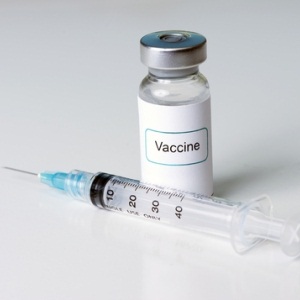
The Human Papillomavirus (HPV) is a hardy, easily transmitted virus that many people have not heard about. It is a common infection and 8 out of 10 adults will come into contact with HPV.
HPV may clear on its own, but no-one can predict who will clear the infection and who will succumb to active HPV disease. HPV disease can cause a variety of diseases in both males and females – including but not limited to cervical cancer, vaginal cancer, vulvar cancer and genital warts. Vaccination can protect against certain types of HPV.
Many doctors and consumers underestimate the risks associated with HPV and the ease with which HPV is transmitted. It can survive undetected on skin or under fingernails. It is resistant to heat and drying, and is able to survive on inanimate objects such as clothing and laboratory equipment that have come in contact with infected people, although the precise survival time of the virus is unknown.
People who have HPV infections may have no symptoms, but the virus can still be transmitted. Individuals can acquire HPV from others who are infected but who don’t have visible disease or lesions.
It may take only one encounter to be infected with HPV. Several months to years may elapse before lesions develop and before they can be clinically detected.
There is no way to know who has been in contact with the virus based on history of relationships or activities.
Human papillomaviruses (HPV) are the major cause of cervical cancer in women. Genital warts and some cancers in males are related to HPV, and most anal cancer, and some cancers of the penis, head and neck are caused by HPV.
How is HPV spread or transmitted?
This virus is spread from person to person through genital skin contact. It is so common that it could be considered a normal part of being sexually active.
Over 100 types of HPV have been identified, of which around 40 affect the genital area.
HPV infects the skin, often causing irregular cell growth or warts. Genital skin-to-skin contact with another individual is believed to be the most common route of transmission. Most sexually active people get at least one HPV infection in their life, usually without ever knowing it. It is very difficult to determine whether a partner who has been sexually active in the past is currently infected. Transmission of the virus is possible even when there are no visible signs of infection. Non-sexual transmission of HPV has been reported.
- HPV has been found quite frequently in young women without prior experience of sexual intercourse.
- A mother with HPV can pass the infection to her child during birth, which would be detected in the linings of the nose and mouth of the child.
In South Africa, where the crime rate and rape rate is very high, it is particularly important to be aware of the way in which HPV is transmitted.
What does the HPV vaccine do?
The HPV vaccine triggers the formation of antibodies to produce immunity and therefore protects the body from disease.
Two HPV vaccines have approval in South Africa - Gardasil and Cervarix. But they do not offer the same cancer protection and neither protect against all types of HPV diseases.
Cervarix protects only against two types of HPV while Gardasil helps protects against 4 types of HPV – and prevents infection with HPV types 16, 18, 6 and 11.
HPV 16 and 18 are responsible for the majority (about 70%) of cervical cancers. HPV 6 and 11 are responsible for 90% of genital warts. Gardasil also protects against 70% of vaginal cancer cases and up to 50% of vulvar cancer cases.
Who is the HPV cancer vaccine for and when should it be given?
The HPV cancer vaccine is recommended for girls and boys – children and adolescents - aged 9 – 17 years. It's important for boys and girls to receive the vaccine before they are sexual active and are exposed to HPV. Once infected with HPV, the vaccine may not be as effective.
If not fully vaccinated at ages 9 – 17, it is recommends that older girls and women receive the vaccine. Speak to a healthcare professional to find out if it would be of value to have an HPV vaccination.
How is the vaccine administered?
It is an injection - given as a series of three injections over a six-month period. The second dose is given one to two months after the first dose, and the third dose is given six months after the first dose. For the HPV vaccine to be effective it is essential that all 3 doses are given timeously.
Does the HPV cancer vaccine offer benefits if you're already sexually active?
Yes. In clinical trials, the HPV vaccines were effective in groups of sexually active women, some of whom had already been infected with one or more types of HPV. However, the HPV vaccine only protects you from specific strains of HPV to which you haven't been exposed. The more sexual partners you've had, the greater your chance of having been exposed to multiple types of HPV.
Do women who've received the HPV cancer vaccine still need to have Pap tests?
Yes. The cervical cancer vaccine isn't intended to replace Pap tests. Routine screening for cervical cancer through regular pelvic exams and Pap tests remains an essential part of a woman's preventive health care.
- (Oz Healthcare Communications press release)
(Digital illustration of human papilloma virus from Shutterstock)




 Publications
Publications
 Partners
Partners















